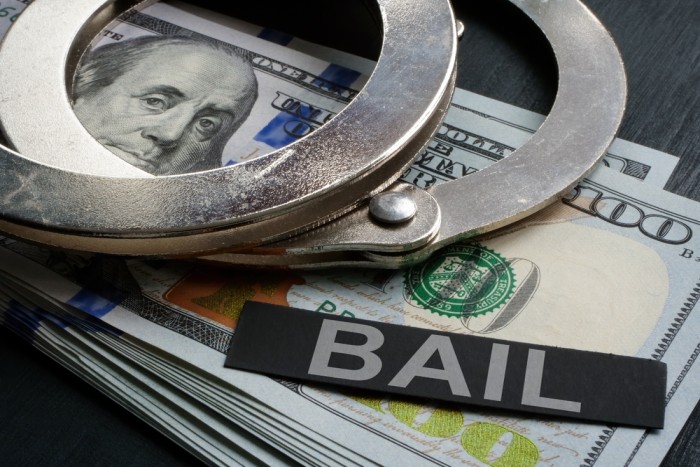
Are you stressing about bail conditions? If you or a loved one has been charged with an offence, an experienced criminal defence lawyer can help you in these circumstances.
In Victoria, the Bail Act 1977 (Vic) (‘Bail Act’) applies to offences not just under state law but Commonwealth offences according to sections 68(1), 79, and 80 of the Judiciary Act 1903 (Cth). Although the accused is legally entitled to bail, there are exceptions, and the burden of proof can shift depending on this.
On 21 May 2018 and 1 July 2018, the Bail Act was reformed due to the Bourke Street tragedy on 20 January 2017. The Bail Amendment (Stage 1) Act 2017 (Vic) and the Bail Amendment (Stage 2) Act 2017 (Vic) were commenced, collectively known as the Bail Amendment Acts 2017.
Whether you’ve been accused of a criminal offence, an indictable offence, or just need a legal guide to your application for bail, this article will run you through what you need to know. Explore what a bail application is, recent Victorian reforms, the process when faced with granting of bail, and where to seek legal advice.

Bail is the release of custody of a person who has been charged, and the person must sign off. Signing this bail bond means they are entitled to conditional freedom but must appear in court to answer this charge. The concept of bail includes:
But who makes this final decision? As Section 3 of the Bail Act defines, bail decision-makers can grant, extend, vary, or revoke bail. Bail decision-makers include the courts, a senior police officer with a sergeant rank or above, police in charge of a station, bail justices, or the sheriff.
If failing to comply with bail obligations, the accused can be arrested as it is criminal to breach a bail condition or commit an offence while on bail. The release overall depends on the severity of the case at hand. For minor offences such as traffic offences or Children’s Court matters, police will serve a charge and summons to attend court at a later date.
Note: In Victoria, the COVID-19 pandemic has impacted the criminal justice system, so in the context of bail, hearing delays, onerous custodial conditions, the number of bail applications and the health risks have been considered by courts at all levels.
The Bail Amendment Acts 2017 compiled changes such as a purpose in Section 1A and guiding principles in Section 1B to maximise the safety of the community and the people affected by crime to a great extent. These changes:
Decisions concerning bail account for the presumption of innocence and the right to liberty. Bail decision-making must always be fair, consistent, and transparent and promote the public’s understanding of bail practices and procedures.

According to this article by Legal Aid, there has been an aim to educate on Victoria’s new bail reform laws, the Bail Amendment Bill 2023 passing the Victorian Parliament in October 2023. Ultimately, this will make laws fairer and reduce the impact felt by women, children, and Aboriginal people. In this case, what are some of the reforms?
There are three different types of bail, but what does this include?
Most accused people are bailed on their undertaking, and the one responsible for the accused attending court when required is the accused themselves.
They may need to deposit money with the police or the courts before their release and are entitled to recover these funds once the matter against them is decided.
Another person–known as a surety–must pay a deposit or put up security to guarantee the accused will attend their court date and place specified in the bail bond. This security can be a sum of money or a title to a property.If the accused doesn’t appear in court to answer their bail, this failure to comply results in the forfeiture of this security to the state, as stated in Section 5 (3) of the Bail Act 1977 (Vic) (‘Bail Act’)
The bail decision-maker must impose a condition that the accused surrender into custody at a time and place for the court hearing.
According to SectionAAA (4) of the Bail Act, there is a list of common bail conditions. However, the bail decision-maker is not limited to these. This will reduce the likelihood of the accused endangering the safety and well-being of any person, committing further offences, interfering with a witness, obstructing the court of justice, or failing to attend court while on bail.Unsure of the relevant documentation needed for your case? May Lawyers is a criminal lawyer supporting Geelong, Ringwood, and Sunshine residents with a favourable outcome.
Let’s look at the conduct conditions noted in SectionAAA (4) of the Bail Act.
According to Section 32A (1), breaching bail on any condition attached without a reasonable excuse is an offence.
An application’s timing and preparation are critical, so when can bail applications be made? Applications can be made at any stage of the criminal process, such as:
Experienced legal representation is essential for legal advice, assessing the case, determining a course of action, and explaining the legal process and outcomes. With this in mind, how can a criminal lawyer expedite your bail if you’ve been charged with a criminal offence in Victoria?
Prepare a bail application. If you don’t want to do this yourself, a lawyer can help you prepare it by addressing relevant legal criteria and highlighting mitigating factors supporting your release. This proposal will also outline any bail conditions you are willing to accept!
Attend the bail hearing. If you are in custody, you are entitled to a bail hearing as soon as possible. At this hearing–whether it be the Magistrate Court, County Court, or Supreme Court–they will consider your bail application and submissions from the prosecution.
Bail decision. The court may consider the offence’s nature or seriousness, the prosecution case’s strength, the defendant’s criminal history, and community ties. The court may also pose conditions on your release, such as a curfew or reporting to the police.Want to learn more about charges and how they can affect your case? Check out what types of drug charges are most common and the options available.
If you’ve been on the hunt for the best criminal lawyers in Melbourne, the May Lawyers legal team understands how a release application can be a difficult time, especially when it comes to family life, your reputation, and your liberty.
With over a decade of hands-on, extensive experience with complex cases in criminal trials, traffic offences, and drug offences, I can increase your chance of success. After all, having someone you can trust in your corner is important.
Whether you need family support with bail laws, help with an initial bail application, or don’t understand previous bail conditions, as a criminal lawyer servicing residents in Melbourne, I can guide you towards successful bail applications and a release from custody.No matter your personal circumstances, contact me today for peace of mind and a compassionate chat. I’m available 24/7 for legal advice if you’ve been arrested.